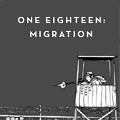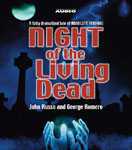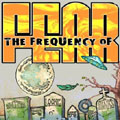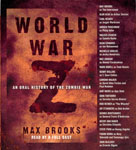
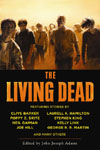 The Living Dead is a paperbook anthology edited by John Joseph Adams. Here’s the premise from the book’s introduction:
The Living Dead is a paperbook anthology edited by John Joseph Adams. Here’s the premise from the book’s introduction:
“Most of the stories in this book are either inspired by Romero’s ‘unholy trilogy’—Night of the Living Dead, Dawn of the Dead, and Day of the Dead—or are a reaction to it.”
There are 34 stories in the anthology. Three are currently available in audio form from Pseudopod and WBAI 99.5 FM’s Hour Of The Wolf (there are two different readings of the David Barr Kirtley story BTW).
Here’s the Table of Contents with the AUDIO adaptations noted:
* Introduction by John Joseph Adams
* This Year’s Class Picture by Dan Simmons
* Some Zombie Contingency Plans by Kelly Link
* Death and Suffrage by Dale Bailey
* Ghost Dance by Sherman Alexie
* Blossom by David J. Schow
* The Third Dead Body by Nina Kiriki Hoffman
* The Dead by Michael Swanwick
* The Dead Kid by Darrell Schweitzer
* Malthusian’s Zombie by Jeffrey Ford
* Beautiful Stuff by Susan Palwick
* Sex, Death and Starshine by Clive Barker
* Stockholm Syndrome by David Tallerman; Read by Cheyenne Wright |MP3|
* Bobby Conroy Comes Back From the Dead by Joe Hill
* Those Who Seek Forgiveness by Laurell K. Hamilton
* In Beauty, Like the Night by Norman Partridge
* Prairie by Brian Evenson
* Everything is Better With Zombies by Hannah Wolf Bowen; Read by Mur Lafferty |MP3|
* Home Delivery by Stephen King
* Less Than Zombie by Douglas E. Winter
* Sparks Fly Upward by Lisa Morton
* Meathouse Man by George R. R. Martin
* Deadman’s Road by Joe R. Lansdale
* The Skull-Faced Boy by David Barr Kirtley; Read by David Barr Kirtley |MP3|
* The Skull-Faced Boy by David Barr Kirtley; Read by Ralph Walters |MP3|
* The Age of Sorrow by Nancy Kilpatrick
* Bitter Grounds by Neil Gaiman
* She’s Taking Her Tits to the Grave by Catherine Cheek
* Dead Like Me by Adam-Troy Castro
* Zora and the Zombie by Andy Duncan
* Calcutta, Lord of Nerves by Poppy Z. Brite
* Followed by Will McIntosh
* The Song the Zombie Sang by Harlan Ellison® and Robert Silverberg
* Passion Play by Nancy Holder
* Almost the Last Story by Almost the Last Man by Scott Edelman
* How the Day Runs Down by John Langan
Here’s more:
From WBAI 99.5 FM’s Hour Of The Wolf and David Barr Kirtley’s podcast:
A discussion of the book (with editor John Joseph Adams, author David Barr Kirtley and host Jim Freund) at |MP3|
Listener calls |MP3|
And, here’s the “Zombieriffic” claymation video that was mentioned in the listener calls…
Posted by Jesse Willis


